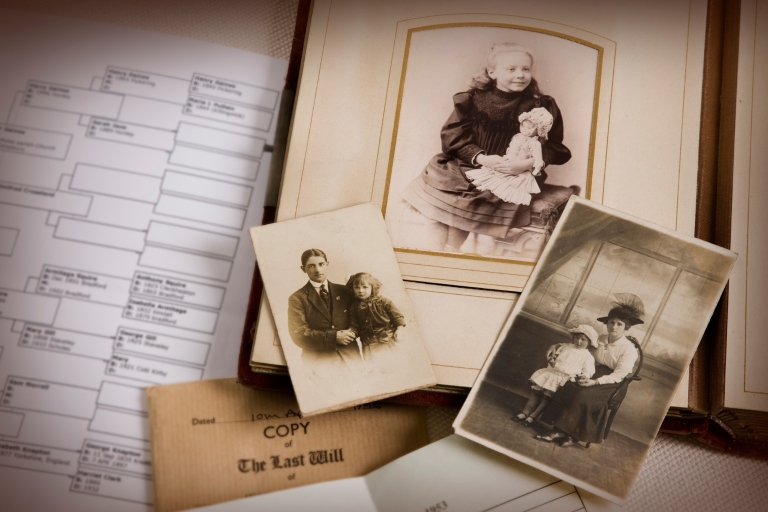
(BLOOMINGTON) – Want to find out if you’re really related to George Washington or Joan of Arc? Ever daydreamed of appearing on the television show “Who Do You Think You Are?” Thought about sending your DNA off in exchange for more information about your ancestral origins or possibly new genetic relatives?

In addition to providing free access to Ancestry.com, IU Libraries can help aspiring genealogists navigate census records and archived newspapers.
Luckily, Indiana University faculty, staff, and students have access to an abundance of research tools through IU Libraries that can benefit genealogical research. In addition to providing free access to Ancestry.com, IU Libraries can help aspiring genealogists navigate census records and archived newspapers to fill out their family tree.
A series of upcoming workshops hosted by IU associate librarian Nicholas Wyant each Thursday this month will cover topics including getting started on genealogy research, using Ancestry.com and news resources and using other open-source genealogy resources. Wyant said the goal is to help people understand that research tools go far beyond a simple Google search and even Ancestry.com.
“Genealogical research of any kind takes an attention to detail, and Ancestry.com is just one tool among many to do that research,” he said. “I sometimes refer to what we have here at IU as an embarrassment of riches, and IU’s unparalleled research collections can help paint a more holistic picture of your family’s past.”
The IU Libraries based in Bloomington provides electronic and print access to many U.S. and foreign newspapers, including The New York Times, The Washington Post, The Wall Street Journal and more. Older issues of many newspapers are available through online databases or on microform in the libraries.
Wyant said these resources can provide context to some of the facts uncovered with Ancestry.com. For example, Ancestry.com may tell you that your relatives moved from Ohio to Indiana in the 1870s, but news resources could indicate why. Maybe they left because of economic hardships, or maybe because they were part of a population being persecuted at the time.
Census data can help verify relatives’ names, relationships, approximate birth years, marital status and birthplaces. It can shed light on your ancestors’ immigration and naturalization, homeownership, literacy, education, childbearing history, neighborhood makeup and more. Census data before 1940 also includes religious affiliations, which Wyant said can be instrumental in refining research.
But Wyant said that using the U.S. Census in genealogy research has its limitations, too. When early censuses were taken, men were considered the heads of households and were the ones who did the reporting. After the Civil War, many former slaves were distrustful of government and less than willing to share information with ledger keepers. Many populations were left misrepresented or not counted at all.
The evolution of handwriting over time coupled with sloppy penmanship of scribes can cause roadblocks in genealogy, too, Wyant said. Researchers believing their surname is less common than it also causes challenges. Wyant said that anyone interested in learning more about their ancestors should be prepared to have long-held beliefs about their family and generational lore invalidated.
Attend Genealogy Workshops
The following workshops will take place from 11 a.m. to noon in Wells Library Room W144. No prior registration is required.
- Feb. 7: Getting Started with Genealogy Research
- Feb. 14: Ancestry.com: Deep Dive Into the Resource
- Feb. 21: Ancestry.com and IU Library News Resources
- Feb. 28: Open-Source Genealogy Resources
“People have to be open to the fact that the record might show something drastically different than what they thought was a reality,” he said. “If everyone who thinks their family came over on the Mayflower actually did so, it would have had to have been an armada of aircraft carriers.”
Still, libraries say the best resource for getting started in genealogy research is the eldest member of your family with the best memory. Keeping a paper trail can help combat some challenges and biases, and traveling to your country of origin can unlock information simply unavailable in the United States.
While genealogy research can be hard work that requires meticulous attention to detail, Wyant said that knowing more about where you came from can be very important for deciding where you’ll go.
“The further you go back, we’re all related,” he said. “That kind of bridges gaps. No matter how people try to divide us into groups of us, them or they, we’re all related. That’s something that, especially now, we should be focused on.”
Information provided by Marah Harbison, News at IU Bloomington, https://news.iu.edu



